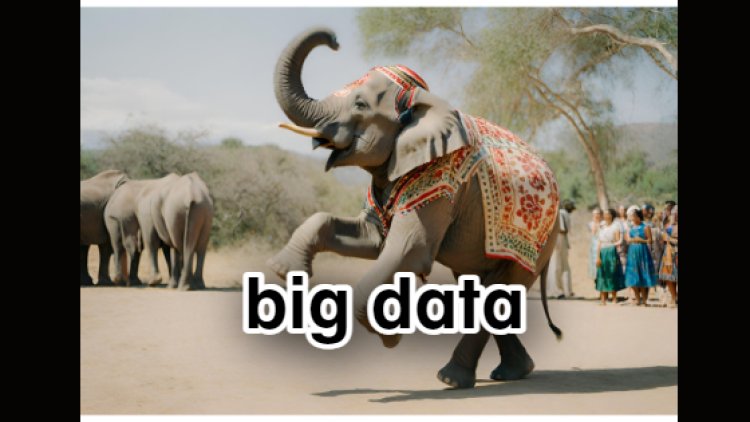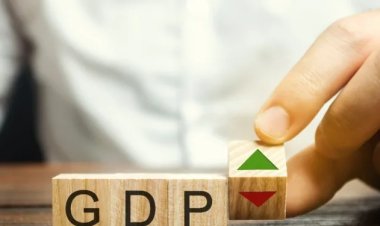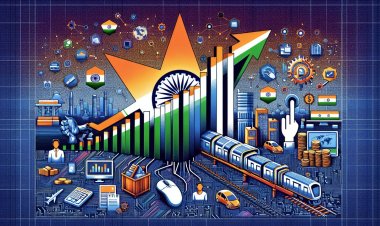What is Big Data?
Big Data, characterized by high volume, velocity, and variety, is analyzed through advanced techniques to reveal patterns and trends, aiding decision-making, predictive analysis, and business optimization, while posing significant data privacy and security concerns.

Big Data, characterised by its significant volume, velocity, and diversity, undergoes analysis using advanced techniques to reveal patterns and trends that assist in decision-making, predictive analysis, and business optimisation. However, this process also raises legitimate concerns regarding data privacy and security.
Big data is defined by its immense volume, rapid velocity, diverse variety of sources and forms, high veracity of insights derived from it, and its potential value for organisations and society as a whole. It encompasses enormous amounts of data generated every second globally due to various activities. This vast amount of data can be harnessed through advanced analytics techniques such as machine learning, predictive modelling, data mining, and statistical analysis to uncover valuable patterns, correlations, market trends, and customer preferences.
One of the most crucial applications of big data is predictive analysis. Utilising historical data allows businesses to forecast future occurrences accurately. By predicting client behaviour or market movements in advance, proactive tactics can be employed for effective decision-making.
In addition to predictive analysis, big data offers immense potential for corporate optimisation. Through detailed analysis of operations data along with insights into consumer behaviour and market trends derived from big data sources, businesses gain an edge in developing effective marketing strategies, improving operational efficiency, and enhancing customer service.
Big data acts as a valuable tool for decision-making by providing organisations with crucial insights and predictive analyses. This empowers businesses to make informed decisions while reducing risks and boosting overall performance.
However, despite the advantages it brings, big data also poses serious challenges to data privacy. The collection, storage, and analysis of vast amounts of personal data raise concerns about potential misuse or breaches, leading to questions regarding data ownership, consent, and privacy rights.
Moreover, the security of large datasets is another significant concern. As big data becomes more prominent, safeguarding these massive volumes of information from cyberattacks, ensuring data integrity, and maintaining stringent access controls become critical priorities.
Looking ahead, the future ramifications of big data are vast and transformative. It continues to revolutionise society in various ways, such as through advancements in artificial intelligence (AI) and machine learning or by influencing policy-making and social dynamics. Clive Humby popularised the slogan "Data is the New Oil," emphasising that, like oil, data holds immense value but is only as valuable as how it is utilised. However, this analogy raises debates surrounding data monopolies and exploitation due to its inherent differences from oil.
There is controversy surrounding certain applications of big data, such as predictive policing. While it can optimise resource allocation for law enforcement agencies, concerns arise regarding racial profiling and privacy issues. Research conducted in Oakland, California, revealed that predictive policing technologies may perpetuate biased enforcement techniques.
In election campaigns worldwide, big data has transformed the way voters are targeted based on their preferences and behaviours. However, incidents like the Cambridge Analytica scandal have ignited debates about its ethical implications and potential influence on democratic processes.
The use of personalised advertisements backed by big data can enhance user experiences by providing relevant information. However, this practice raises privacy concerns as it necessitates surveillance of individuals' online behaviour. Studies indicate that a considerable number of internet users in the United States are worried about their data being used for personalised advertising.
In the healthcare sector, big data has immense potential, ranging from predicting disease outbreaks to tailoring personalised therapies. However, ethical concerns regarding patient consent and data privacy remain significant considerations. Controversies have emerged, such as Google's Project Nightingale, which faced criticism for secretly collecting health data from millions of Americans.
Data breaches, where unauthorised individuals gain access to data, pose a serious threat in the era of big data. They can result in financial losses, reputational damage, and even national security risks. The Yahoo data breach in 2013 affected three billion accounts and serves as a notable example.
The use of large datasets in training AI systems can unintentionally perpetuate biases present in the data itself. This can lead to unequal outcomes in areas like hiring practices, financing decisions, and law enforcement. Amazon discontinued an AI recruitment tool that exhibited bias towards women after it was discovered during testing.
While big data offers insights into patterns and trends that can help address climate change, the energy consumption of data centres storing and processing massive amounts of data poses a significant environmental concern. Data centres are projected to account for 3.2% of total global carbon emissions by 2025.
Every day, we generate an astounding amount of 2.5 quintillion bytes of data, representing 90% of global data generated within the past two years alone. The widespread use of mobile phones by more than five billion people worldwide further contributes to this massive influx of big data. Notably, Walmart processes over one million consumer transactions every hour and maintains databases containing over 2.5 petabytes of data.
NASA's active missions generate approximately two terabytes of data per second, highlighting the vastness and velocity at which big data is produced daily. In terms of cost savings, Netflix attributes savings worth $1 billion annually to its utilisation of big data algorithms for subscriber retention. Furthermore, Google handles an astounding 40,000 search requests per second, resulting in over 3.5 billion daily searches and 1.2 trillion annual searches.
In the healthcare sector, embracing big data to enhance efficiency and quality could potentially save $300 billion per year. Self-driving cars generate a staggering amount of four terabytes, or 4,000 GB, of data every single day.
Dispelling certain myths surrounding big data is crucial for a comprehensive understanding. While large data sets can provide significant insights, they do not possess inherent intelligence; the value lies in the analysis and interpretation of the data rather than the data itself. Additionally, big data is not exclusive to tech giants like Google or Amazon; businesses of all sizes and industries can leverage big data for insights, better decision-making, and improved operations.
Addressing concerns about privacy invasion by big data is important. Not all big data comprises personally identifiable information, and strict regulations and ethical principles are in place to protect individual privacy.
Big data is a powerful tool but not a solution for everything. It provides valuable insights and aids decision-making, but it cannot replace human intuition, creativity, and strategic thinking.
When it comes to storing large amounts of data, distributed systems such as Hadoop Distributed File System (HDFS) and Google File System (GFS) are commonly used to manage massive volumes of data by dispersing it across multiple workstations. Cloud storage systems like Amazon S3 also offer scalability and reliability for storing huge amounts of data.
Various technologies exist for processing big data efficiently. Popular examples include Apache Hadoop for distributed processing of large datasets, Apache Spark, known for its speed and usability, and NoSQL databases like MongoDB, designed to handle vast amounts of data across multiple servers.
The use of big data is regulated differently across countries and industries. Data protection laws, privacy laws, and industry-specific standards frequently govern its use. For instance, the General Data Protection Regulation (GDPR) in the European Union establishes stringent guidelines for personal data usage.
Big data is revolutionising work in various ways. It creates new job opportunities for data scientists and data analysts who specialise in studying and understanding data. However, it also automates certain tasks, potentially leading to job displacement in specific industries. Nevertheless, it offers opportunities for upskilling and reskilling as employees adapt to the data-driven economy.
Despite its immense potential, big data has limitations. Concerns about data privacy, data quality, the need for trained data analysts, and the overwhelming volume of information leading to "analysis paralysis" are among the constraints faced when dealing with big data.
Individuals can protect their data by being cautious about the information they share online, using strong and unique passwords, regularly updating software and devices, and employing privacy solutions like VPNs and tracker-blocking browser extensions. Additionally, under laws like GDPR, individuals have the right to request information collected about them by companies and have that data removed if desired.
TradeFxP Features
If you choose to be a self-employed retail trader, here are a few things we offer:
- The best trading Platform
- No Requotes
- Lowest Spreads
- High-level liquidity
- Interbank connectivity
- Pure STP/DMA/ECN
- Free signals
- Best support
- Crypto Wallet and withdrawals / Deposits (USDT)
- Robust CRM
- TradeFxP wallet
- Once click withdrawal
- Multiple payment options
- Local offices to walk in
- Free VPS
- Free Video Chat / Virtual Meetings
- And many more…
If you choose to be a part of our managed account program:
- All of the above +
- 1-2% Daily Profits
- High-level risk management
- Capital protection
- Only 30% of the capital used
- Negative balance protection
- Our fee is from the profits only
- Monthly profit withdrawal
- Wallet system – Use it like Phonepe, or Google Pay
- Crypto wallet and withdrawals / Deposits (USDT)
- Live monitoring
- MyFxbook Live monitoring
- Copy Trading
- And many more…
Optional: If you do not withdraw your profits for 2 months, our system will use those profits to trade and will keep your 100% capital safe and secure for margin purposes. This is optional, and if you choose not to be a part of it, you can withdraw your profits from the first month itself.
Why 1-2% daily? Can't your managed forex account earn more?
Yes, we can! Remember: greed may be good in the beginning, but in the end, it will destroy everything. You and I know that! Many droplets make an ocean! Join the Managed Account Program and sit back for six months, then look at your account. You'll see that our strategy is good and the best. Do you know what I mean?
If you choose to be a part of us as an introducing broker (IB) or channel partner,
- Industry best Rebates
- Local Office support
- Staff support
- Marketing support
- Marketing materials
- And many more…
Having said that….
You can join our Forex Managed Account program and earn 1-2% profits daily. See for yourself by clicking the below link.
Have a great journey, and may you catch some big waves on your way to prosperity!
To see Ai Forex Trading for real, use these credentials.
- Low-risk strategy:
- Mt4: 112018
- Pw: Allah@101
- Server: tradefxp live,
1. To read why you should be with us, click here.
2. To open an account, click here.
3. To see our regulation certificate, click here.
4. To see our news with the IFMRRC, click here.
5. For claims, click here.
6. For the main site, click here.
7. For blogs and articles, click here.
8. Main Website: www.TradeFxP.com



 admin
admin 










